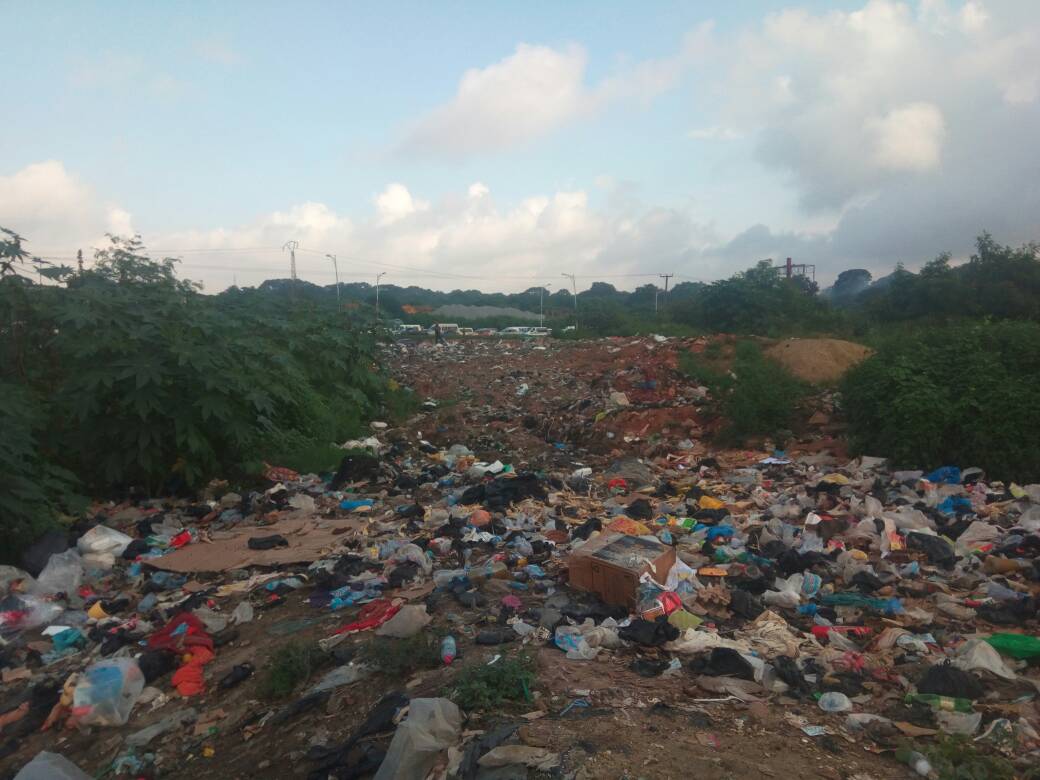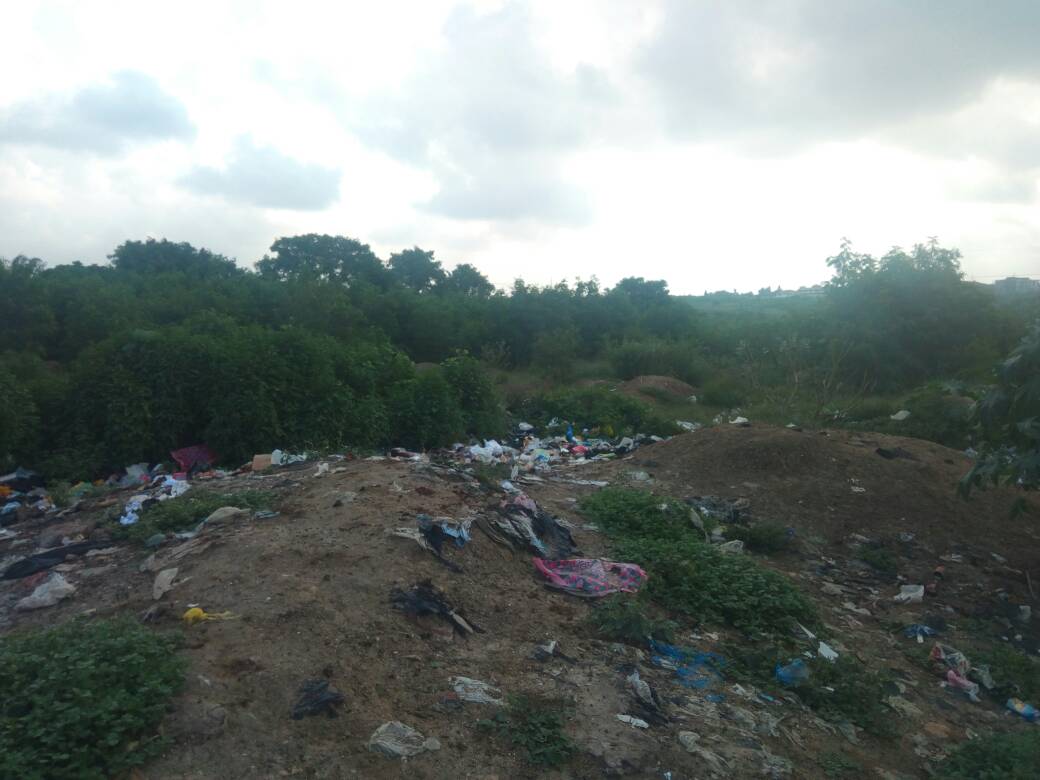From the Okponglo bus stop, one can see the illegal refuse site grow bigger than it used to be. The Accra Metropolitan Assembly about month ago, partially cleared the illegal dump site.
The Director of Waste Management at the AMA, Anthony Mensah, told Citi News the area will be cleared and leveled.

To prevent the situation from recurring, Mr. Mensah said the Assembly will write to the University of Ghana to prevent encroachers from dumping their refuse there since the land belonged to the school.
But Peter, a resident who has lived there for the past 20 years, told Citi News that “the refuse dump has become bigger than what it used to be.”
The people in the squatter spoke about their bitter experiences living virtually on a refuse dump.
“Mosquitoes are really disturbing us. We can’t even sleep. And when it rains, the stench is unbearable. The rains push all the refuse into our homes. We also don’t have public toilet so all of us including children, adults and nursing mothers defecate openly at the dump site” a 47-year old man who moved out of his self-contained house in Koforidua to perch in what has become a squatter told Citi News.
Known as simply as Lizzy, the mother of one and hawker of “pure water” told Citi News at around 9:00am that she was going up the refuse dump to defecate.
Another one, a nursing mother with an eight month old baby, who just joined her husband in the squatter, says she sends her ‘three year old son to throw refuse there”.
On open defecation, she said she goes to refuse dump early in the morning to avoid being seen by some guys who hang around to watch ladies as they ease themselves.”
The distraught mother complained about the dangers the situation poses to the health of family and called for a public toilet and a relocation of the dump site.
Kofi Peter, whose father used to burn the refuse at the site until his death last Thursday, told Citi News“the refuse has become bigger than what the AMA came to clear”.
He further added that, attempts by the Assembly member to provide a container for collection of the refuse hangs in the balance as the University of Ghana has banned such a move.

The squatters told Citi News neither tricycles nor tracks from any of the environmental service providers visit their area. They also say dust bins promised them by the assembly are yet to arrive.
It was therefore not surprising to find domestically generated waste tucked in corners of the various houses without separation, as organic and inorganic waste take over the parcel of land which serves as a playground for children, business hub and a residence for the people who live there.



